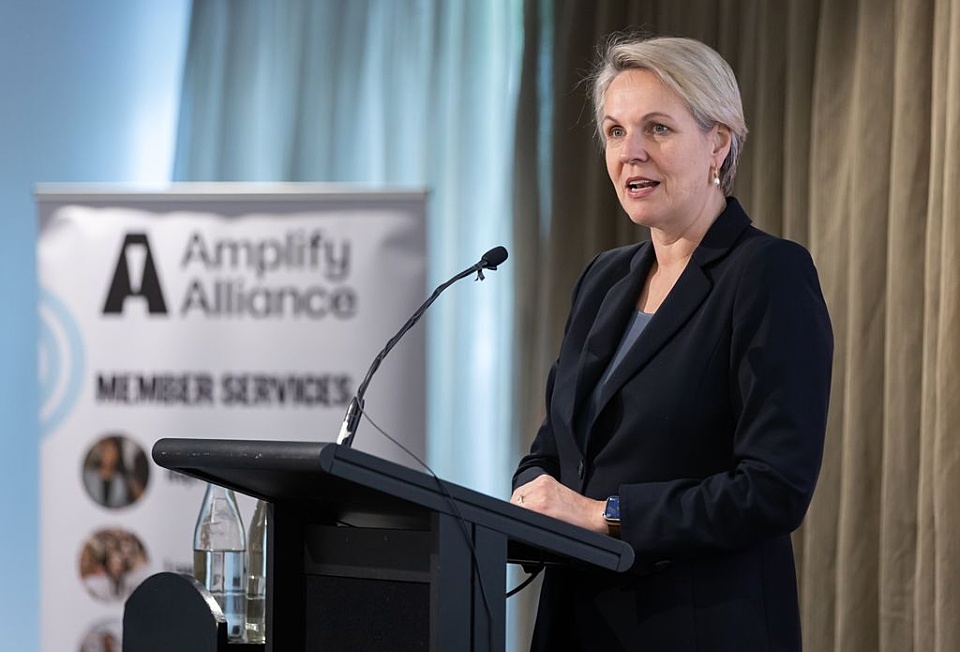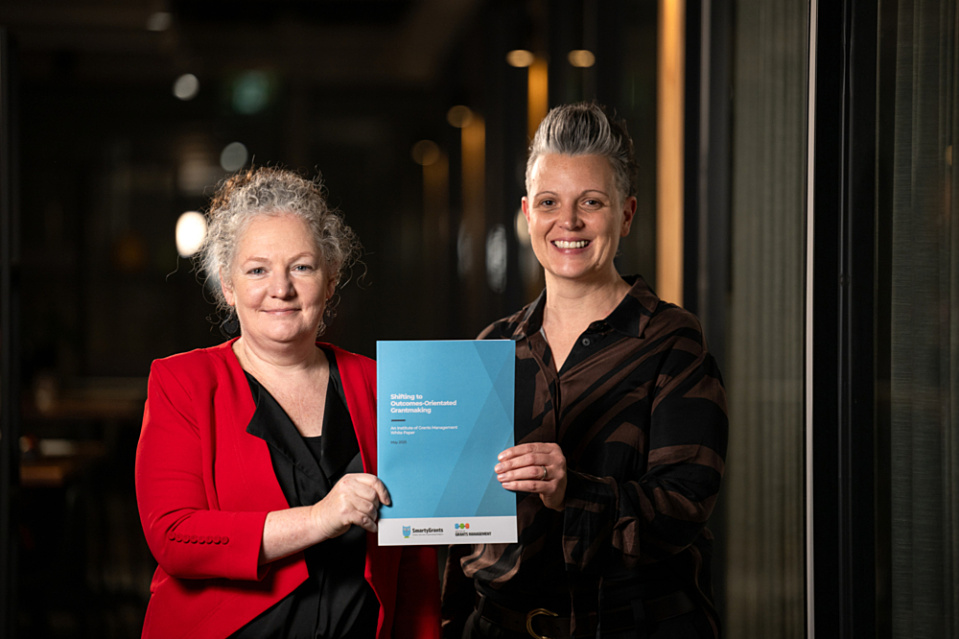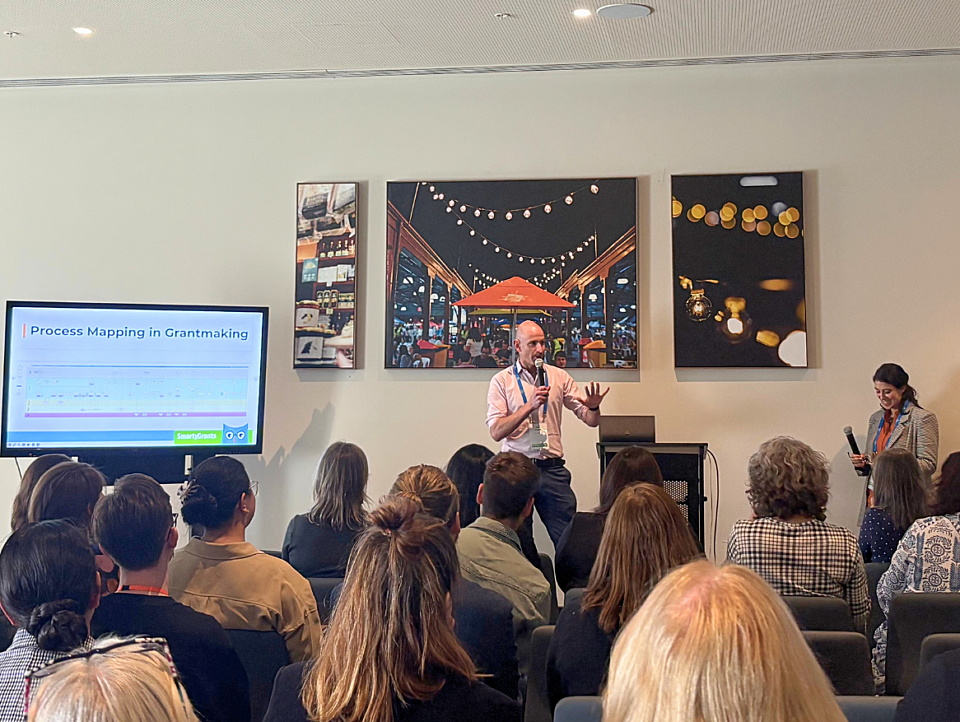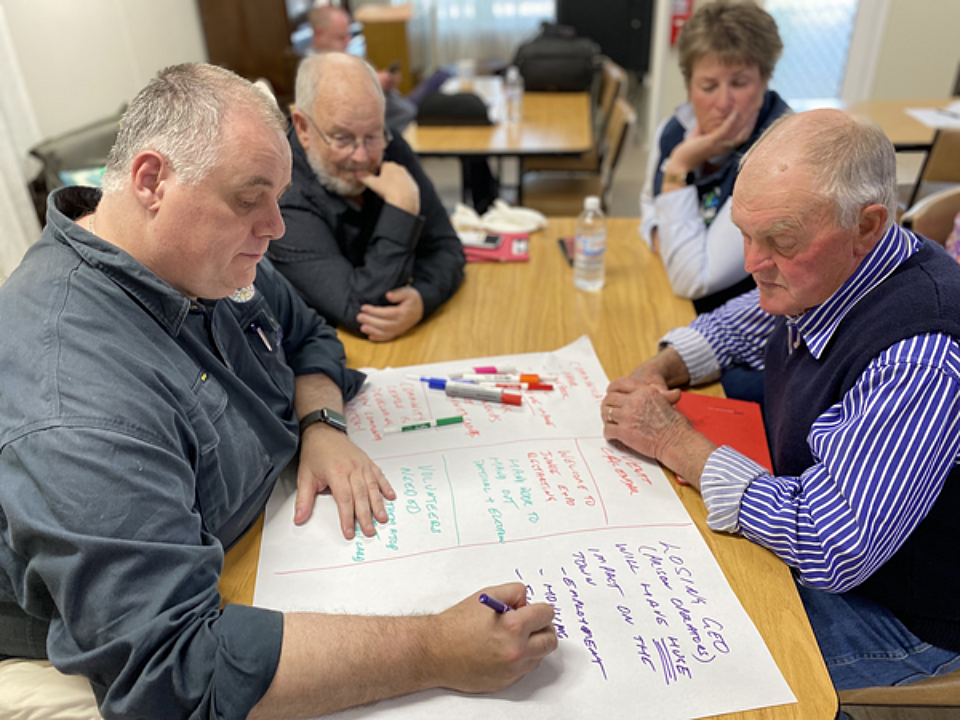
Feds flag human services grants shakeup
Posted on 15 Dec 2025
The federal government is trialling longer-term contracts for not-for-profits that deliver…
Posted on 13 Jun 2025
By Matthew Schulz, journalist, SmartyGrants
This speech was delivered by the Assistant Minister for Productivity, Competition, Charities & Treasury, Dr Andrew Leigh, to coincide with the launch of the Shifting to Outcomes-Orientated Grantmaking white paper, published by the Institute of Grants Management.

Now, let’s be honest. Grantmaking is not the kind of word that lights up a dinner party.
It’s never going to rival football or crime podcasts in national popularity.
What it lacks in glamour it more than makes up for in significance.
At its best, grantmaking is about much more than money. It’s about belief.
It’s about backing people and communities to solve tough problems with smart, grounded solutions. A well-placed grant is an act of trust, a quiet vote of confidence in a vision for a better world.
But belief alone isn’t enough. At some point we have to ask what happened next. The money went out the door. The program ran. People turned up. What changed?
That’s the central question behind Shifting to Outcomes-Orientated Grantmaking, the report being launched today at the inaugural Grant Impact Forum.

"It is, in short, a call to be stewards of change, not just stewards of money."
Written by Kathy Richardson and Jen Riley and produced by the Institute of Grants Management, it challenges all of us, from government to philanthropy and not-for-profits, to focus not just on what we’re doing, but how it changes people’s lives for the better.
Because here’s the truth. We’ve built increasingly efficient systems for getting grants out the door. We’ve streamlined applications, sped up payments, tracked every dollar. But we’ve been less successful at tracking outcomes. Too often, reporting stops at outputs. We count the number of workshops, we tally the attendees, we add up how much was spent.
But these numbers on their own don’t tell us if someone’s mental health improved, or if a community grew more connected, or if a clever local project sparked lasting change.
This report argues for a better way. Outcomes-orientated grantmaking means weaving outcome goals through every stage of the process. From program design to data management, from contracting to monitoring, the focus shifts from activity to impact.
And it’s not just a different process, it’s a different mindset. It means asking harder questions, being more comfortable with ambiguity, and treating failure as something to learn from, not something to hide in the footnotes.
It is, in short, a call to be stewards of change, not just stewards of money.
The report doesn’t sugarcoat the challenges. It’s honest about the difficulties. Outcomes can be messy. They take time. They’re hard to attribute, but the response is not to give up. The right response is to start small, build trust, and stay curious.
To be clear, this isn’t a war on outputs. Outputs matter, but they’re the means, not the end.
We get this instinctively in our own lives. We don’t measure fitness by how many times we walked into a gym, we measure it by whether we feel stronger, healthier and more energised. That same logic should guide our approach to grants.
I want to congratulate the Institute of Grants Management for a report that is practical, thoughtful and refreshingly honest. It’s part of a broader shift in all communities that are seeking to drive evidence-based outcomes and one I strongly support.
Through the Australian Centre for Evaluation, we are helping government departments test and scale what works, and build a culture of learning around public spending.
And that’s really what this is about: smarter, clearer, better ways to help communities thrive.
Thank you for being part of this conversation and for the work you do every day to make grants not just flow but count.

Posted on 15 Dec 2025
The federal government is trialling longer-term contracts for not-for-profits that deliver…

Posted on 15 Dec 2025
A Queensland audit has made a string of critical findings about the handling of grants in a $330…

Posted on 15 Dec 2025
The federal government’s recent reforms to the Commonwealth procurement rules (CPRs) mark a pivotal…

Posted on 15 Dec 2025
With billions of dollars at stake – including vast sums being allocated by governments –grantmakers…

Posted on 15 Dec 2025
Nearly 100 grantmakers converged on Melbourne recently to address the big issues facing the…

Posted on 10 Dec 2025
Just one-in-four not-for-profits feels financially sustainable, according to a new survey by the…

Posted on 10 Dec 2025
The Foundation for Rural & Regional Renewal (FRRR) has released a new free data tool to offer…

Posted on 10 Dec 2025
A major new report says a cohesive, national, all-governments strategy is required to ensure better…

Posted on 08 Dec 2025
A pioneering welfare effort that helps solo mums into self-employment, a First Nations-led impact…

Posted on 24 Nov 2025
The deployment of third-party grant assessors can reduce the risks to funders of corruption,…

Posted on 21 Oct 2025
An artificial intelligence tool to help not-for-profits and charities craft stronger grant…

Posted on 21 Oct 2025
Artificial intelligence (AI) is becoming an essential tool for not-for-profits seeking to win…